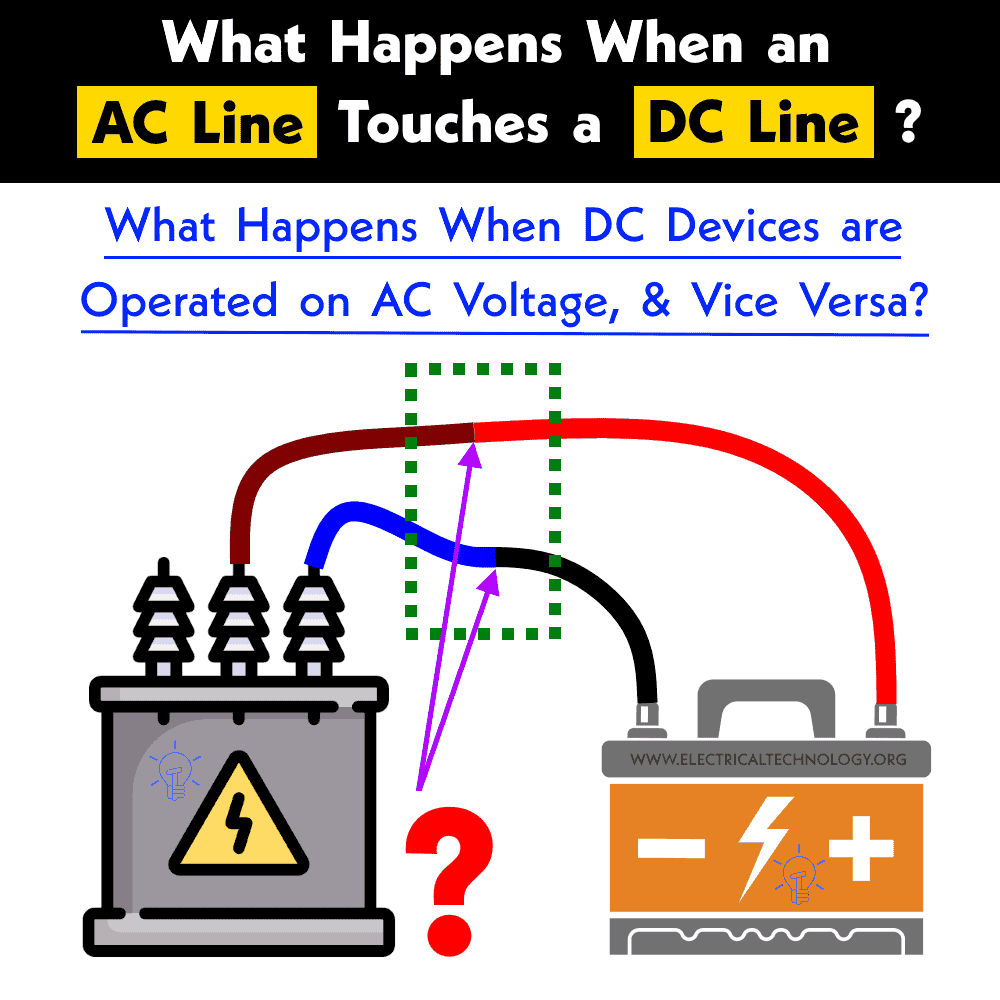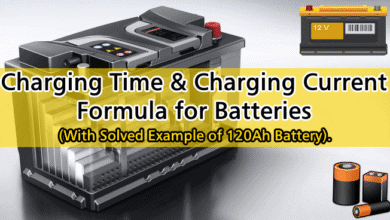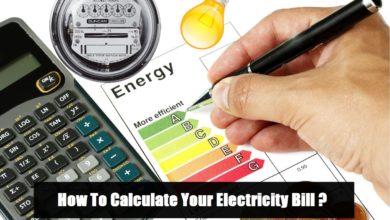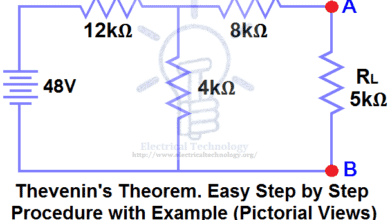What Happens When an AC Line Touches a DC Line?
What Happens When DC Equipment are Operated on AC Voltage and Vice Versa ?
AC and DC Mixed Operated Devices
There is no simple, one-word answer like ‘Yes’ or ‘No’ for this complex question like what happens when an AC line touches a DC line? This is because the answer depends on several factors. Let’s discuss the possible factors influencing the situation:
Some devices, such as universal motors, vacuum cleaner motors, and AC/DC operated fans, can function on both AC and DC voltage and currents. These devices may operate faster on DC than on AC at the same voltage level. Additionally, AC and DC signals can be combined for various purposes. For example, in clamping circuits used for amplification, adding positive DC voltage to a sine wave shifts it upwards from the zero-crossing axis, while adding negative DC voltage has the opposite effect.
In the above scenarios, (i.e. when AC mixed with DC)
Equation of Pure AC Current:
i = Im Sin ωt + θ
Where:
- i = Instantaneous value of current
- Im = Max or Peak value of current
- ω = 2πf = Angular frequency
- θ = Phase angle difference
Now, If DC is mixed with AC, it becomes
i = Im Sin ωt + θ ± I’
Where I’ = is DC Current and we use it for multiple purposes. But keep in mind that it is not always the case i.e. you can’t apply the same mixture of AC and DC to all electrical and electronic devices and equipment. In next section, we will discuses what happens if we apply DC to the AC equipment and vice versa and what are the results.
Generally, the residential and home supply voltage is 120V AC (230V in EU) and 3-18V DC in case of electronic circuits. If accidentally AC line touches the DC line connected to the electronic circuit and components, the result may be bad smell smoke, flames or even worse.
This is because the DC devices are designed to be operated at specific and pure DC voltage and current. In case of AC components when DC connected to it, it may not work properly (that’s why a transformer can’t be operated on DC voltage) or even start to smoke and burn.
Related Posts:
- AC or DC – Which One is More Dangerous And Why ?
- Which One Kills – Current or Voltage and Why? Amps vs Volts
- Difference between AC and DC (Current Voltage)
What Happens When AC Devices are Operated on DC?
We know that most of the AC machines uses inductors and coils such as motor, transformer etc. The Impedance (overall resistance) of the AC machines depends on the frequency of the supply voltage.
Mathematically,
Resistance in AC Circuit : Z = V / I in Ω
Where:
- Z = the overall resistance of AC = Z = √ (R2 + (XL + XC)2
- XL = Inductive reactance in Ω
- XC = Capacitive reactance in Ω
- V = Voltage in Volts
- I = Current in Amperes
But XL and XC depends on frequency i.e.
- XL = 2πfL
- XL = 1/ 2πfC
Now, we know that there is no frequency in the DC. i.e. f = 0 in DC circuits. Now the overall resistance for DC would too much low as compared to the AC. this way, excessive current will flow in the field coils or inductor which may burn or blast the overall circuit.
Lets see the simple example below where the applied voltage is 50V and 10Ω in both AC and DC:
Current in AC Circuit:
- I = V/Z
- I = 50V / 10Ω
- I = 5A
Current in DC Circuit:
- Z = zero because of 0 frequency (putting XL = 2πfL = 0 because f = 0)
- I = V/Z
- I = 50V/0Ω
- I = ∞ (Infinity).
This shows that excessive current will flow in the circuit if we connect an AC machine or device with DC supply which leads to burn the rotor or stator coils. If they survive, they wont be able to operate at normal condition.
Another case is that AC circuits using capacitor where we know that a capacitor blocks DC and let pass AC through it. This is another reason that an AC device won’t work perfectly on DC supply.
In short, if we connect an AC device to the DC supply:
- Some machine like motors may not work properly or even damage (except the universal motors operated on both AC and DC).
- A Transformer may start to smoke and burn if DC supply is connected to the primary of a transformer. Same is the case of alternators.
- Coils and solenoid may rapidly burn if connected to the DC supply.
- In some cases, filters rectify the AC and provide DC. Some devices needs only peak value of AC which is 40% higher than the RMS value of AC. If operated with high DC voltage, the operation may be acceptable.
- Overall, if DC applied to the AC rated devices, some may burns, start to smoke, work partially or not at all according to the designs and operations.
Related Posts:
- What is the Role of Capacitor in AC and DC Circuit?
- Why Can’t We Store AC in Batteries instead of DC?
- Is Lightning AC or DC ?
What Happens When DC Devices are Operated on AC?
If we connect an AC supply to the DC devices and equipment (e.g. connecting an AC line to the DC line):
- The positive and negative voltage will destroy (this is not always the case) some of electronic components such as transistors and electrolytic capacitors. In case of higher AC voltage, they may burn with blast and catch fire.
- Batteries which charges on DC only, If you connect an AC source to the battery. It will not charge and expect an explosion and fire.
- In relays and audio amplification devices, the AC signal variation generate humming noise which is unacceptable.
- Some components may not reset or operate properly even they survive the negative half cycle.
- Microcontrollers and microprocessors in digital computer works on digital logic “1” and “0” as ON/OFF. AC will generate lots of ON/OFF signals, where microprocessor wont be able to decide a direction as ON or OFF which leads to annoying or useless operation of the system.
Related Posts:
- Why Do Electronic Circuits Use DC Current instead of AC?
- Difference between AC and DC Transmission System
What Will Happen When an AC Line Connects to the DC Line?
All of the above discussed scenarios will happens at once. If accidentally an AC line touches a DC line connected to the DC rated devices and components, they may destroyed such as thyristor , transistor, resistors, capacitors, inductors, microchips, ICs. If the level of voltage is low and the duration is small, the fuse or circuit breaker may blow and disconnect the circuit from the power supply. You may notice a spark flash light and bad smell smoke as well.
Conclusion:
If you are curious about the effects of connecting AC to DC and vice versa, remember Murphy’s Law (anything that can go wrong will go wrong). AC equipment will not function correctly on DC, and DC devices may perform poorly on AC.
For your safety, never attempt this at home (i.e., connecting an AC line to a DC line), as it can result in serious injuries from electric shock and fire. Ensure that proper protective devices are installed on the systems to prevent damage to both AC and DC rated equipment and components. Stay safe.
Related Articles:
- What Happens if We Connect a Polar Capacitor the Wrong Way?
- What Happens if a Battery is Connected to the AC Supply?
- Why Do Electronic Circuits Use DC Current instead of AC?
- Why a Transformer Can’t be Operated on DC Supply?
- Why Don’t Birds and Squirrels Get Electrocuted on Power Lines?
- Why is Live Line-Washing or Cleaning Done on Energized Power Lines?
- What Happens When Aircraft and Plane are Struck by Lightning?
- Will a Man Get an Electric Shock If He Hangs on a Live Wire?
- Can the Neutral Wire Cause Electric Shock? Different Cases
- Will I Get an Electric Shock If I Touch the Ground Wire?
- What is the Role of Capacitor in AC and DC Circuit?
- Which Bulb Glows Brighter When Connected in Series and Parallel & Why?
- Why Earth Pin is Thicker and Longer in a 3-Pin Plug?
- Why are US Homes Wired Using Solid Wire rather than Stranded Wire?
- Why 3-Phase Power? Why Not 6, 12 or More for Power Transmission?
- If a 1-Phase Supply is 230V, Why is 3-Phase 400V & Not 690V?
- Why are Stones Laid in an Electrical Substation?
- What happens if You Connect a 3-Φ Induction Motor to 1-Phase Supply?
- What happens to the 3-Phase Motor When 1 Out of 3 Phases is Lost?
- Why Does AC Need More Insulation Than DC at Same Voltage Level?
- Difference between AC and DC Resistance – How to calculate it?
- Basic Electrical & Electronics Interview Questions & Answers
- 65+ Basic Electronics Engineering Interview Questions & Answers









Kindly check,
“What Happens when AC Devices Operated on DC?
Current in DC Circuit:
Z = zero because of 0 frequency (putting XL = 2πfL = 0 because f = 0)
I = V/Z
I = 50V/0Ω
I = 50A.
This is not 50A, thats infinite amount of current
We have updated it. Thanks for correction.